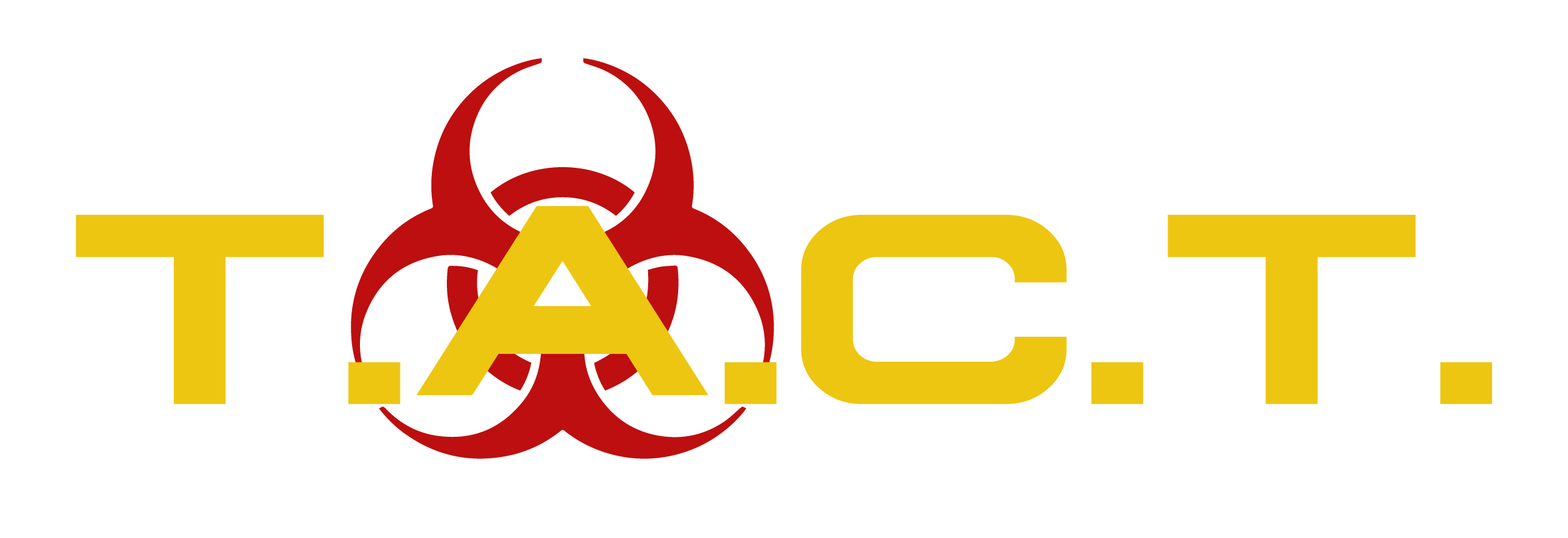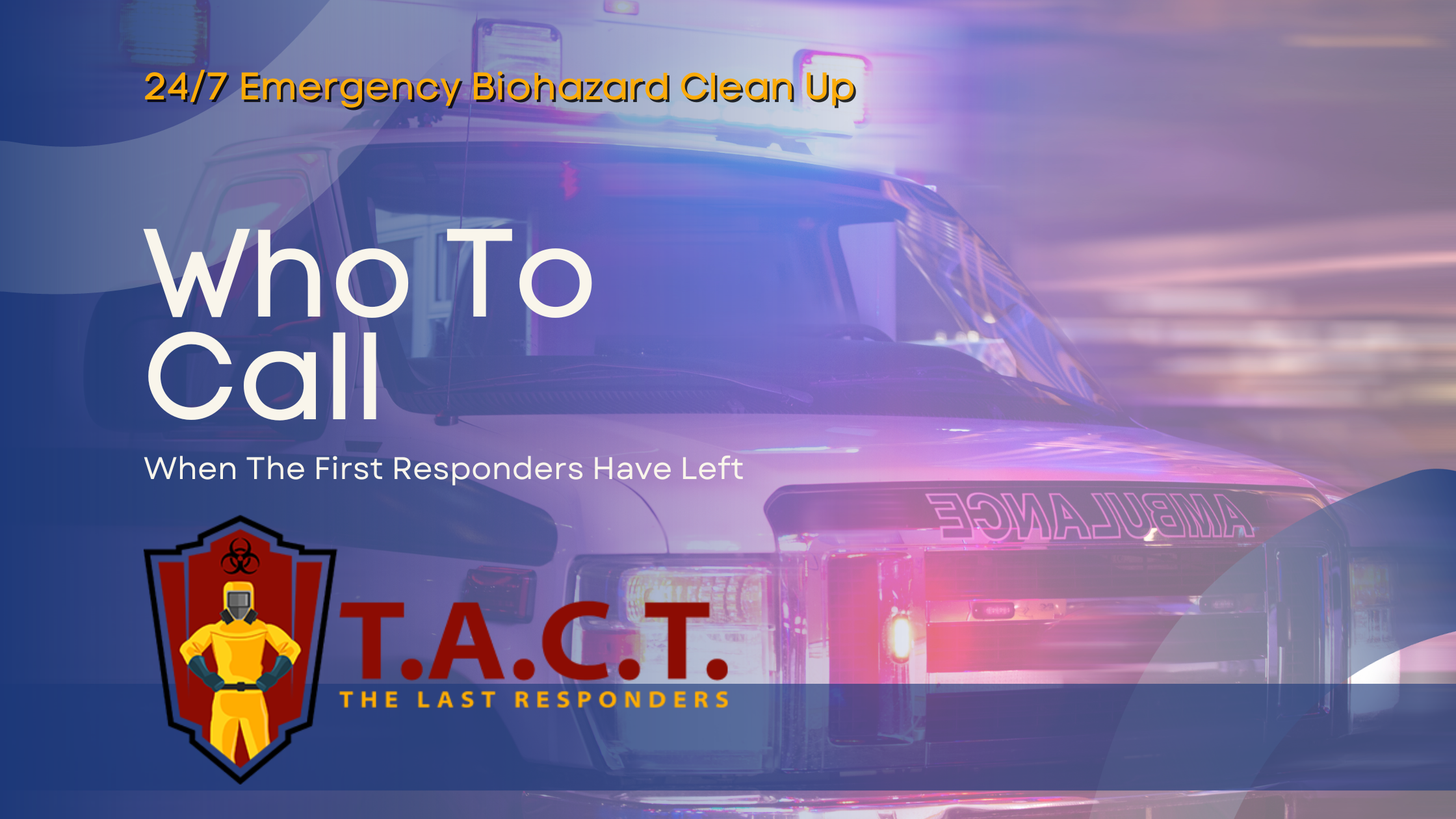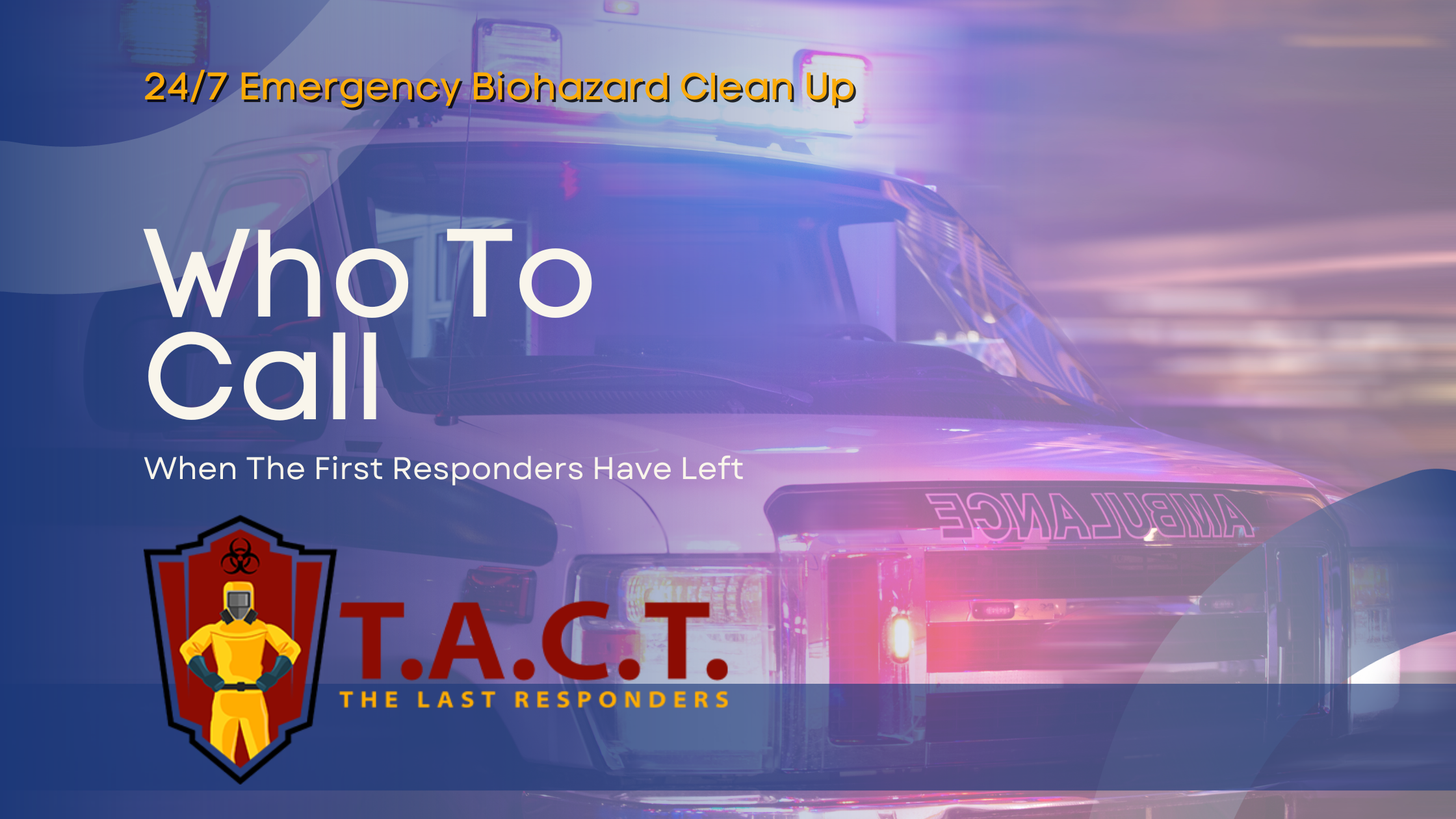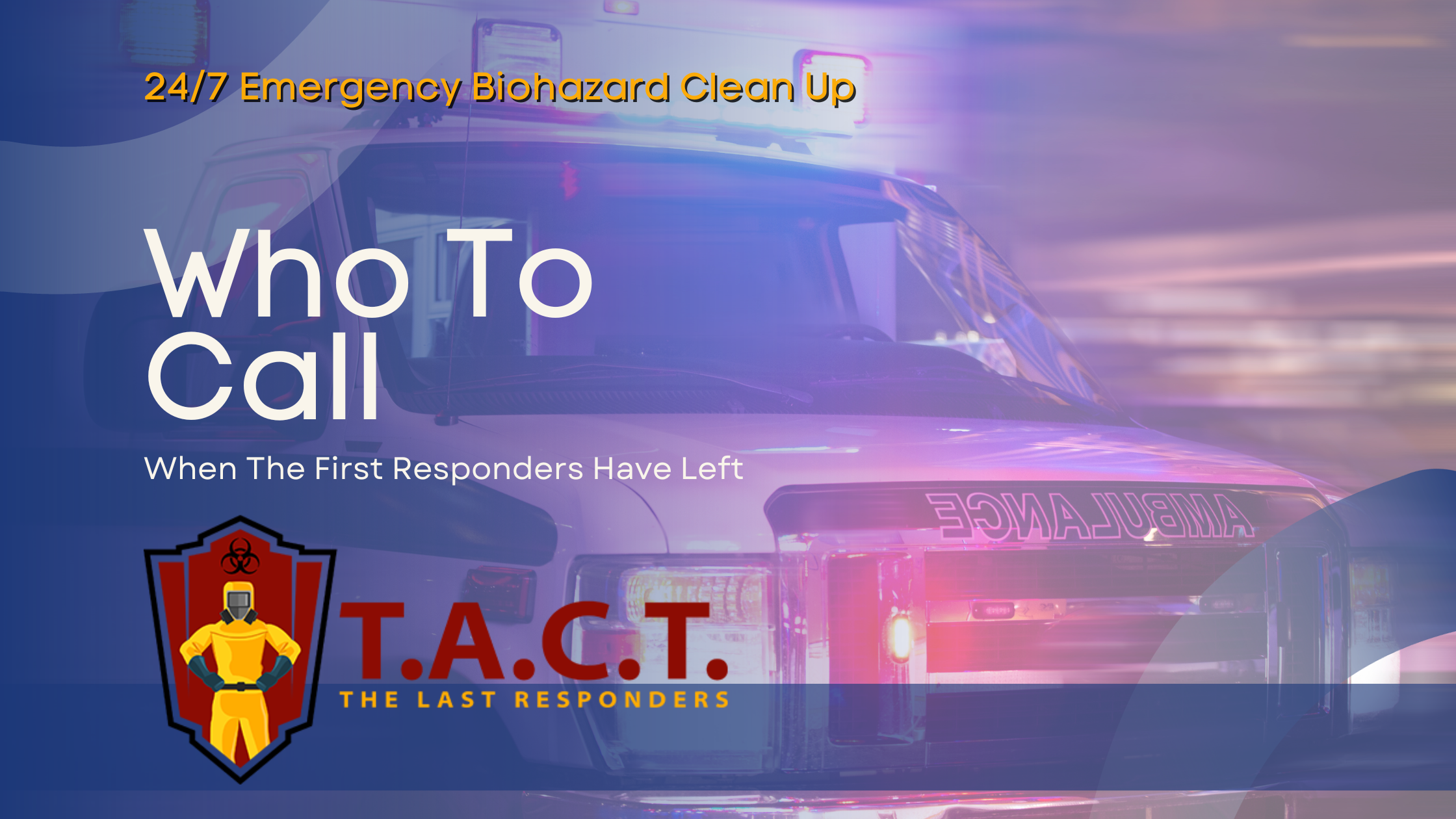Guide to Trauma and Crime Scene Cleanup with TACT

Essential Guide to Trauma Crime Scene Cleanup Services and Support
When tragedy strikes, families, property owners, and communities are often left to grapple with the aftermath of biohazards left at the scene. From homicides to unattended deaths, the physical remnants can pose serious health risks and emotional trauma. This is where professional trauma and crime scene cleanup services, including biohazard cleaning, come in—ensuring safety, restoring order, and offering discreet and compassionate support during difficult times.
This guide will walk you through what crime scene cleanup entails, the regulatory requirements governing the industry, the benefits of hiring professionals, and how to choose the right company for the job. Whether you’re navigating a difficult situation now or preparing for the unexpected, you’ll learn why trusted providers like TACT of North Atlanta can be counted on for relief and restoration.
What is Crime Scene Cleanup?
Crime scene cleanup, also referred to as biohazard remediation, forensic cleanup, or crime and trauma scene decontamination, involves the meticulous cleaning, sanitizing, deodorizing, and biohazard removal of scenes contaminated by biohazards such as blood, bodily fluids, or other infectious materials. These situations may arise from incidents such as:
Accidents
Suicides
Homicides
Unattended deaths
Mass trauma events
Professionals in this industry use advanced tools and specialized knowledge to restore affected areas to safe, livable conditions—removing any trace of harmful pathogens or contaminants.
Regulatory Requirements and Industry Standards
The cleanup of trauma and crime scenes isn’t simply about surface cleanliness; due to the nature of biohazards, it is a tightly regulated procedure. Professionals must adhere to stringent protocols set by several governing bodies to ensure safety and compliance, including:
OSHA (Occupational Safety and Health Administration): OSHA requires minimizing exposure to blood-borne pathogens and other potentially infectious material as they may be infectious and pose serious health risks.
NIOSH (National Institute for Occupational Safety and Health): Sets guidelines for ensuring the well-being of cleanup crews during operations.
DOT (Department of Transportation): Governs the proper disposal and transportation of hazardous materials.
EPA (Environmental Protection Agency): Regulates the use of cleaning chemicals and disposal of biohazardous waste to protect the environment.
Additionally, many states, including California, Georgia, and Florida, require crime scene cleanup companies to be registered with their Department of Health. Clients should confirm this before choosing a service provider.
Who Needs Crime Scene Cleanup Services?
Crime scene cleanup services are vital for anyone dealing with situations involving biohazards or traumatic incidents such as homicides, suicides, or accidents. Common clients include:
Families and Friends: Providing safe and compassionate cleanup for private homes and properties affected by tragedy.
Employers and Landlords: Restoring business premises or rental properties following biohazard exposure.
Law Enforcement Agencies and First Responders: Cleaning up scenes quickly and effectively to allow them to focus on their critical responsibilities.
Communities and Property Owners: Ensuring safety while restoring normalcy to public or personal spaces.
The Crime Scene Cleanup Process
Professional cleanup involves more than just removing visible signs of trauma; it’s about performing trauma scene remediation according to specialized standards and practices to ensure that every trace of biohazard is safely eliminated. The typical process involves:
Assessment: Evaluating the scene for potential risks and designing a comprehensive action plan.
Removal of Biohazards: Using specialized tools to safely remove biological contaminants, including blood and bodily fluids.
Cleaning and Disinfecting: Deep cleaning and applying EPA-approved disinfectants to eliminate pathogens.
Deodorizing: Neutralizing odors to restore a sense of normalcy.
Proper Waste Disposal: Transporting hazardous materials to compliant disposal facilities in accordance with regulatory guidelines.
Biohazard and Trauma Cleanup
Beyond crime scenes, biohazard cleanup extends to various specialized situations, including drug labs, chemical spills, deceased animals, and hoarding environments. The risks associated with biohazard cleanup are significant, as bodily fluids and other potentially infectious material can carry diseases such as HIV, AIDS, or Hepatitis B and C. To prevent exposure, dedicated professionals follow rigorous protocols to ensure safety and thorough remediation.
Supporting Law Enforcement and First Responders
Crime scene cleanup companies like TACT of North Atlanta also play a critical role in supporting law enforcement and emergency response teams. By providing professional cleaning services to remove hazardous materials quickly and safely, they allow first responders to focus on their essential work in protecting and caring for individuals and communities.
These partnerships go beyond technical assistance; many providers extend their gratitude to officers and first responders through resources, programs, and giveaways as a token of appreciation for their service.
Unattended Death and Blood Cleanup Services
The decomposition of an unattended death or the aftermath of a traumatic injury can leave behind pathogens, odors, and stains that require specialized care. Trauma scenes, in particular, highlight the risks and emotional toll associated with such events, emphasizing the necessity of professional cleanup services to ensure safety and support for those affected. At TACT of North Atlanta, technicians are trained to discreetly and effectively handle such scenes 24/7, ensuring privacy and professionalism. Whether the situation involves trauma, meth labs, or extensive hoarding, restoration is carried out with respect and sensitivity for those affected.
Benefits of Hiring Professional Crime Scene Cleaners
Hiring a professional crime scene cleanup company offers several distinct benefits, including:
Safety First: Professionals have the appropriate equipment and training to handle biohazards, reducing the risk of exposure to blood-borne pathogens.
Restoring Normalcy: They clean and sanitize the area thoroughly, ensuring it is safe and habitable while removing any visual reminders of tragedy.
Emotional Relief: Cleaning up after a traumatic incident can be emotionally overwhelming. Professionals handle the process discreetly so families and communities can focus on healing.
Choosing the Right Crime Scene Cleanup Company
When selecting a crime scene cleanup company, consider these factors to ensure trustworthy, high-quality service:
Registration and Compliance: Verify that the company is registered with the Department of Health and adheres to OSHA and EPA guidelines.
Experience and Training: Look for a provider with a proven track record in biohazard remediation.
Compassion and Discretion: Professional cleanup isn’t just about technical skills—it’s about providing understanding and support during emotionally charged situations.
Frequently Asked Questions About Crime Scene Cleanup
When faced with the aftermath of a traumatic event, many people have questions about the process and importance of crime scene cleanup. Here, we address some of the most frequently asked questions to provide clarity and peace of mind.
What is crime scene cleanup, and why is it necessary? Crime scene cleanup, also known as biohazard remediation, involves the removal and disposal of potentially infectious materials (PIMs) and other hazardous substances from a crime scene. This process is essential to prevent the spread of diseases and to restore the scene to a safe and habitable condition.
What types of situations require crime scene cleanup? Crime scene cleanup is necessary in various situations, including unattended deaths, homicides, suicides, accidents, and other traumatic events that result in the presence of bodily fluids and other potentially infectious materials.
What are the risks associated with crime scene cleanup? Crime scene cleanup poses significant health risks to individuals who come into contact with potentially infectious materials, such as human blood, which can carry deadly diseases like HIV/AIDS, Hepatitis B, and Hepatitis C.
Who is responsible for paying for crime scene cleanup? Typically, property owners are responsible for covering the costs of crime scene cleanup services. However, some homeowner and business owner insurance policies may include biohazard coverage for remediation services.
What is the difference between crime scene cleanup and regular cleaning? Crime scene cleanup is a specialized service that requires trained professionals to handle and dispose of potentially infectious materials and other hazardous substances. Regular cleaning services lack the necessary training and equipment to manage these situations safely.
How long does crime scene cleanup typically take? The duration of crime scene cleanup can vary depending on the severity and location of the incident. Cleanup can take several hours to several days, depending on the complexity of the scene.
What is the importance of proper disposal and decontamination in crime scene cleanup? Proper disposal and decontamination are crucial to preventing the spread of diseases and restoring the scene to a safe and habitable condition. This involves following strict protocols for handling and disposing of potentially infectious materials and using specialized equipment and cleaning solutions.
Can I perform crime scene cleanup myself? It is not recommended to perform crime scene cleanup yourself. This task requires specialized training and equipment to handle potentially infectious materials and other hazardous substances safely. Attempting to clean up a crime scene without proper knowledge and tools can expose you to deadly diseases.
How do I choose a reputable crime scene cleanup company? When selecting a crime scene cleanup company, look for one that is licensed, insured, and experienced in biohazard remediation. Check for certifications from reputable organizations, such as the American Bio Recovery Association (ABRA), to ensure the company meets industry standards.
What is the role of law enforcement in crime scene cleanup? Law enforcement agencies play a critical role in crime scene cleanup by securing the scene and ensuring it is safe for cleanup personnel to enter. They may also provide guidance on the cleanup process and ensure that all necessary protocols are followed.
By addressing these common questions, we hope to provide a better understanding of the importance and intricacies of crime scene cleanup. If you have further questions or need professional assistance, don’t hesitate to contact a trusted provider like TACT of North Atlanta.
After the Cleanup: Support and Resources
For those affected by trauma and those who serve the community, support extends beyond physical cleanup. Companies like TACT of North Atlanta provide tools, resources, and awareness programs aimed at rebuilding lives and strengthening communities. Examples include giveaways of personal protective equipment (PPE) and grants for K9 units to assist law enforcement.
Building Safety and Restoring Hope
Traumatic events leave an undeniable mark on people and places, but with the support of professional crime scene cleanup services, recovery is possible. From ensuring regulatory compliance to creating safe spaces, companies like TACT of North Atlanta combine technical expertise with empathy, helping to restore a sense of normalcy during life’s most difficult moments.
If you or someone you know is navigating a crisis, contact TACT of North Atlanta for compassionate, professional cleanup services. Together, we’ll help you rebuild one step at a time.



